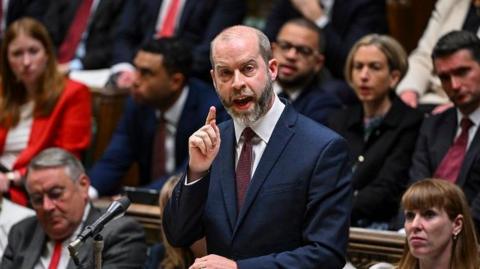The legislation going through Parliament was not resisted by opposition parties – but the Conservatives said the government should have acted sooner and made "a total pig's breakfast of this whole arrangement".
The new law hands Reynolds sweeping powers to control management and workers at the plant to ensure production continues, including entering it by force, if necessary, to secure assets.
But Jingye will retain ownership of it for now.
The government remains hopeful it can secure private investment to save the loss-making plant, but ministers concede there are currently no companies willing to make an offer.
In the Commons, Reynolds acknowledged that public ownership was "the likely option".
He said the government would "pay the fair market rate" to shareholders in the event of nationalisation but added: "In this case the market value is effectively zero."
Keeping a loss-making plant open could come at a high cost to taxpayers.
But Reynolds insisted it was in the "national interest" to retain the ability to make steel from scratch and he believed the company had a future, particularly as the government was boosting infrastructure spending.
"Steel is fundamental to Britain's industrial strength, to our security, and to our identity as a primary global power", he told MPs.
He said he had been forced to take over the running of the plant because Jingye, which bought British Steel in 2020, had rejected the government's offers to buy raw materials to keep the blast furnaces running.
"Despite our offer to Jingye being substantial, they wanted much more. Frankly, an excessive amount. We did however remain committed to negotiation.
"But over the last few days, it became clear that the intention of Jingye was to refuse to purchase sufficient raw material to keep the blast furnaces running, in fact, their intention was to cancel and refuse to pay for existing orders.
"The company would therefore have irrevocably and unilaterally closed down primary steel making at British Steel."

